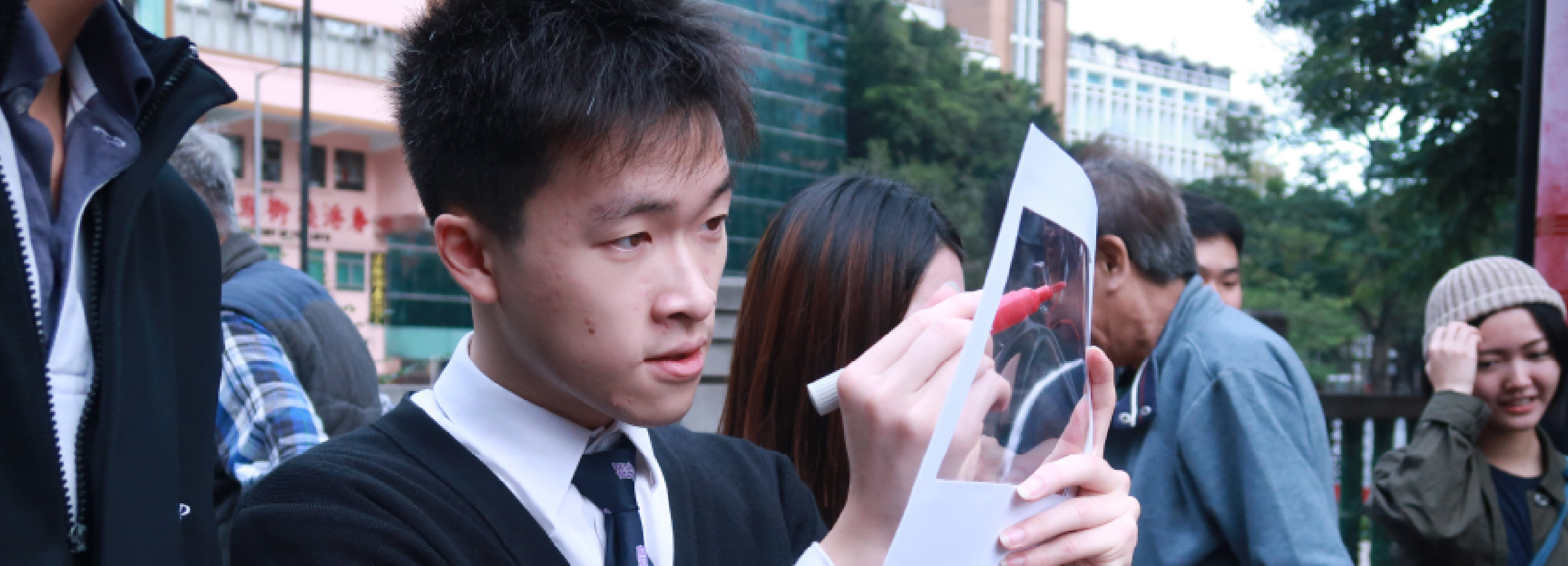Author: Ching Wai Kuen John
(Reposted from the Edu Insights Column of the HK Educators’ Club)
Concern about the mental health of young people in Hong Kong is increasing. Evidence shows a worsening mental health crisis against the backdrop of social movements and the rampaging COVID-19 pandemic. According to recent data, the number of young people seeking psychological help is rising, having increased by 30% compared to the number before June 2020 (about half a year ago). Some high school students stated that they wanted to ‘take a leave of the world’ or ‘go to heaven’ due to the pressure of assessment tests when schools resumed face-to-face classes.[1]
With Hong Kong being a utilitarian city, students are driven to be ‘goal-oriented’, which causes several problems such as excessive pressure, learning only for scores, and overcorrection and ultimately leads to ‘high test scores but low abilities’. In extreme cases, students lose interest in learning, become test machines and are filled with negativity.
In the early years, some schools in Hong Kong introduced ‘positive education’, a popular approach to educational practice in foreign countries, with the hope that students could lead a rich, varied, healthy and happy life. Derived from ‘positive psychology’, ‘positive education’ prioritises individual strengths, well-being and the positive thinking of students, which differs from the traditional school education that focuses on identifying and correcting individual weaknesses. Gradually, more schools in Europe, America and Australia are adopting ‘positive education’ to help students develop positive relationships and emotions and healthy lifestyles, which will help them enhance their resilience and mindfulness. Many studies have found that ‘positive education’ can instil noble character traits in students, facilitate their physical and mental health and help them remain positive in the face of challenges, thereby helping them maintain a positive attitude towards life and reduce depression, anxiety and behavioural problems.[2]
Positive education practice in Hong Kong
I, together with other fellow educators, have promoted ‘positive education’ in Hong Kong for several years. More and more schools that have adopted ‘positive education’ are gradually sharing their practices and experiences to provide more references for others and create more possibilities for student-oriented education. Furthermore, some schools have not only added growth elements to teaching, but have also changed their teaching paradigms (changes in teaching language and textbook design[3] or values[4]). However, such changes may be hindered by several cultural and cognitive factors.
The exam-oriented education mode makes it very difficult to ignore the burden of ‘test scores’. Many teachers doubt if ‘positive education’ can improve students’ test scores while also encouraging them to willingly and happily learn (a greater interest in learning will probably, if not absolutely, boost students’ test scores). Failure to lower the test score requirement (or excessive attention to) restricts the full implementation of ‘positive education’, and a short-term pilot trial of ‘positive education’ will certainly not make a significant difference.
Cognitive biases result in errors in the practice of ‘positive education’. Some people mistakenly believe that ‘positive education’ should be ‘positive’ at all times. An extreme example is that some schools require teachers not to scold students, even for their mistakes, for the fear of the negative impact scolding will have on the students.[5] Such a requirement poses many problems because it encourages teachers to ignore students’ mistakes, which does not benefit ‘positive education’.
In my view, the true meaning and value of ‘positive education’ lie in helping students (or even teachers) develop positive values (or attitudes) and pursuits in life, maximise their personal strengths, enjoy the challenges they encounter and remain optimistic during difficult times. Children receiving ‘positive education’ are fearless in the face of challenges and certain about their strengths and development paths in the pursuit of prosperity and happiness (lack of which might be the root cause of the existing social problems).
Popularity of foreign education modes in Hong Kong
|
|
As foreign education methods are popular in Hong Kong, many people prefer international schools or schools that offer international courses (such as IB programs) despite the high tuition fees and, in some cases, the requirements for purchasing school bonds. Studying at these schools is a status symbol and offers the opportunity to meet other children of rich families who might be helpful for one’s career development in the future. The learning mode also plays an important role in people’s preference.
Education in foreign countries (many of which have changed their educational paradigms only in the past decade) differs significantly from that in Hong Kong. For example, in Canada,[6] learning is driven by curiosity, and students are encouraged to explore life and practice what they have learned. The model on the right shows a picture of a bird feeder made from a milk carton, which not only protects the environment[7] but also conveys a profound educational meaning. Some schools ask students to design their own skis and try them in the snow, which involves art and physics education. Students can enjoy the art of ‘do-it-yourself’ during learning (or be driven by their expectations to learn). Contrarily, STEM teaching in some Hong Kong schools only focuses on models that are but toys with no practical value. The process involved in building these models is separated from learning.
Hong Kong enjoys abundant resources and a global perspective. If the city is less utilitarian, its students will truly enjoy learning and blossom in different fields. When in love with learning,[8] students will learn how to think,[9] and many learning-related problems could be solved easily.
[1]For details, see “The number of Hong Kong young people seeking psychological help increases by 30% - A Secondary 5 Girl: I want to take a leave of the world”, Hong Kong 01, 25 January 2021, https://www.hk01.com/ 18區新聞/578452/港童精神科求診數字增三成-中五女生-我最想同個世界請假/
[2] For details, see the website of Positive Education Hong Kong: https://www.positiveeducation.org.hk/?lang=en.
[3] “China Holiness College is building positive relationships between teachers and students to facilitate students’ ability building”, Master Insight, https://www.master-insight.com/中聖書院-師生攜手建正向關係-培育學生帶得走的/
[4] “A primary school holds a ‘Glorious Failure’ activity where students have no classes for a week - Principal: Those who are not taught to face failure will fail in the future”, Hong Kong Economic Times, 08 February 2018, https://topick.hket.com/article/2008141/小學辦「失敗週」不上堂%E3%80%80非常校長:不學面對失敗一定失敗
[5]Scolding does not mean venting anger on students. For the positive effect of scolding, see “How to Scold A Student” by President Chen Deheng (http://ism.edu.mo/wp-content/uploads/2018/02/%E6%80%8E%E6%A8%A3%E8%B2%AC%E7%BD%B5%E5%AD%B8%E7%94%9F.pdf).
[6]Examples in this article are based on the author’s experience, course information obtained via the Internet and information heard by the author.
[7]Milk is a daily staple for Canadians. Hong Kong has done well in environmental education. Still, I have heard that some food waste or plastic bottle recycling competitions have actually driven students to waste more resources in order to win.
[8]Students in Hong Kong are excited about the suspension of classes due to weather conditions. The only concern may be falling behind the course schedule. However, in the community where I live is following ‘positive education’, students love learning and generally expect to return to school, even though class suspension allows them to sleep more.
[9]However, in the recent curriculum reform, general education has shifted from guiding students’ thinking to imparting knowledge, which suggests that education is going backwards.

